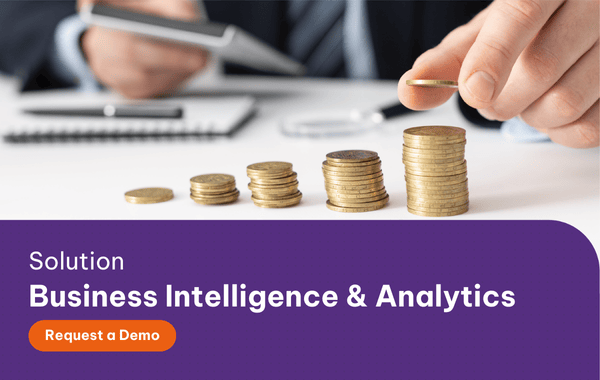The previous blog entry has set the scene for the increasing business intelligence demand. It would not be reasonable to shoot straight to the implementation phase without outlining a Business Intelligence strategy beforehand. This article will point out factors to consider when building a best-in-class business intelligence framework.
What is a Business Intelligence strategy?
Any strategy needs to include a set of common goals and objectives that align with the company’s vision or mission. So does a BI strategy.
To start managing the effectiveness of data toward a common set of goals and objectives, businesses must specify key performance indicators (KPIs) and metrics that monitor the organisation’s progress towards meeting those goals and objectives.
Measurement methodologies such as Six Sigma and the Balanced Scorecard play vital roles in many performance management tactics, offering best practices and thought leadership.
“But methodologies and metrics must have support from timely, accurate data drawn from the array of available sources and presented in ways that business users can understand and analyse easily” (Ventana Research, 2010).
This is where BI steps in, and this also denotes the first feature of a best-in-class BI strategy, which is aligning KPIs with business goals.
Read more: Top 10 trends in Business Intelligence for 2017

Elements of a sound Business Intelligence strategy
A sound Business Intelligence strategy, according to a report by Aberdeen in 2010, should:
- Align KPIs with business goals
- Connect decision makers with data
- Deliver analytical capability to more business functions
- Consolidate/centralise management of data
- Foster collaboration between IT and business
Each department has specific KPIs, thus it is important to have a BI strategy that aligns operational KPIs with line-of-business goals.
“To enable the information-centric business to manage performance effectively, organisations need to extend their BI and reporting platform to make it the essential provider of information-dependent insights to operational users in contact centres, on shop floors and in front-office positions such as sales” (Ventana Research, 2010). That means organisations need to extend the use of BI enterprise-wide.
Read more: Data Analytics for Manufacturing: the Tesla’s Case Study
One of the most frequently cited problems when it comes to data management is the complexity and disparity of data sources. Many businesses have been struggling to manage increasingly crowded islands of information, scattering across different sources such as spreadsheets, an ERP or CRM system, or in the case of BI, data may be pulled from an operational data warehouse.
Best-in-class companies take stock of what data is needed, know where data resides and deliver data (at the very least in raw form) to the targeted decision makers.
Top performing companies also take actions to consolidate and centralise the management of data, which helps remove inherent disparity in most data infrastructures, allowing easier data extraction and insight generation from that data.
Infographic: 4 Steps to Automate Enterprise Data Management
As you may have noticed, to deploy a sound Business Intelligence strategy, technology plays a vital role. However, in the real world, when it comes to BI adoption, there is a tendency to associate it with heavy IT reliance.
According to a study by Aberdeen in 2010, nearly half of respondents said IT played a primary role in operational BI decisions with input from line-of-business management. The best practice is, nonetheless, the middle point, where both the IT and the business side collaborate with each other for long term efficiency and sustainability.
***
Refer to our next blog entry, where we will discuss success factors of an operational BI platform.
 English
English  Vietnamese
Vietnamese 



